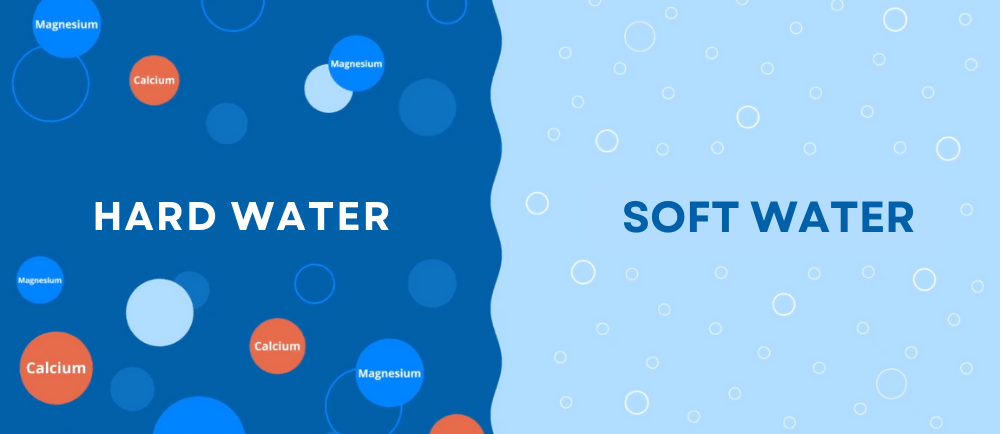The Science of Salt: How It Softens Hard Water
Water is essential for daily life, but not all water is created equal. Many homes, businesses, and public services deal with hard water, which contains high levels of calcium and magnesium. Over time, this can lead to limescale buildup, reduced efficiency of appliances, and increased maintenance costs. Luckily, water softening salt provides an effective solution, ensuring smoother operations for businesses, hospitals, schools, and hospitality industries. But how does salt actually soften water, and why is it so important? Let’s dive into the science behind this essential process.


What Is Hard Water?
Hard water is water that has dissolved minerals—primarily calcium and magnesium. While not harmful to health, these minerals create several problems:
Limescale buildup: Clogs pipes, damages appliances, and reduces efficiency.
Soap inefficiency: Hard water makes it difficult for soap and detergent to lather, leading to wasted products and extra cleaning effort.
Reduced appliance lifespan: Boilers, dishwashers, washing machines, and heating systems work harder and wear out faster.
For public services, commercial businesses, and industrial operations, hard water can increase maintenance costs and reduce efficiency, making a reliable water softening system essential.
How Does Salt Soften Water?
Water softeners use a process called ion exchange, and salt is the key ingredient that makes it all work. Here’s how:
The Resin Beads Trap Hardness Minerals
Inside a water softener, there’s a tank filled with tiny resin beads. These beads carry a negative charge, which attracts the positively charged calcium and magnesium ions from hard water.
As water flows through the softener, the resin beads capture these minerals and remove them from the water supply.
Salt Regenerates the System
Over time, the resin beads become saturated with calcium and magnesium. To restore their effectiveness, the system needs to be "regenerated" with a saltwater (brine) solution.
Water softener salt, such as Hydrosoft tablets or granular salt, dissolves in water to create this brine, which then flushes through the softener.
The sodium ions in the salt replace the calcium and magnesium ions, allowing the resin beads to continue their job.
The Result: Softened Water
The system flushes away the unwanted minerals, leaving behind soft water that is free from the issues caused by hardness.
The Benefits of Water Softening for Businesses & Public Services
1. Extends Equipment Lifespan
Hard water can damage heating systems, boilers, and dishwashers. Soft water prevents limescale build-up, reducing breakdowns and increasing the longevity of equipment.
Schools, hospitals, and restaurants rely on efficient water systems—softened water ensures smooth operation and fewer costly repairs.
2. Saves Money on Maintenance & Energy
Limescale forces appliances to work harder, increasing energy consumption and running costs. Water softening improves efficiency, leading to lower bills.
Less limescale means fewer maintenance issues, reducing long-term expenses for businesses and public sector facilities.
3. Improves Cleaning & Hygiene
Soft water lathers better with soap, meaning less detergent is needed for washing, dishwashing, and cleaning.
Hotels, restaurants, and commercial laundries benefit from brighter linens, cleaner dishes, and shinier surfaces with softened water.
4. Better for Health & Well-Being
Softened water is gentler on skin and hair, reducing irritation and dryness.
In healthcare and public service buildings, where hygiene is critical, softened water ensures better sanitation and reduces build-up on fixtures.
Choosing the Right Water Softener Salt
Using the correct type of salt is essential for keeping a water softener working efficiently. Hydrosoft tablets or granular salt are the most effective options, ensuring a smooth regeneration process.
At Salt Silo, we provide high-purity Hydrosoft water softening salt, available in:
10kg or 25kg bags
Pallet quantities for bulk buyers
With reliable, high-quality salt, businesses and public services can keep their water softening systems running at peak efficiency.
Final Thoughts
Water softening might not be the first thing on a business or facility manager’s mind, but its impact is undeniable. From lower costs and better efficiency to prolonged equipment life, softened water keeps operations running smoothly.
If your business, school, hospital, or hospitality service relies on water, investing in a high-quality water softening system—and the right softener salt—is a decision that pays off in the long run.
Spread the Word! Spread the Salt!
💧 For premium water softening salt, visit Salt Silo and keep your systems running smoothly!
